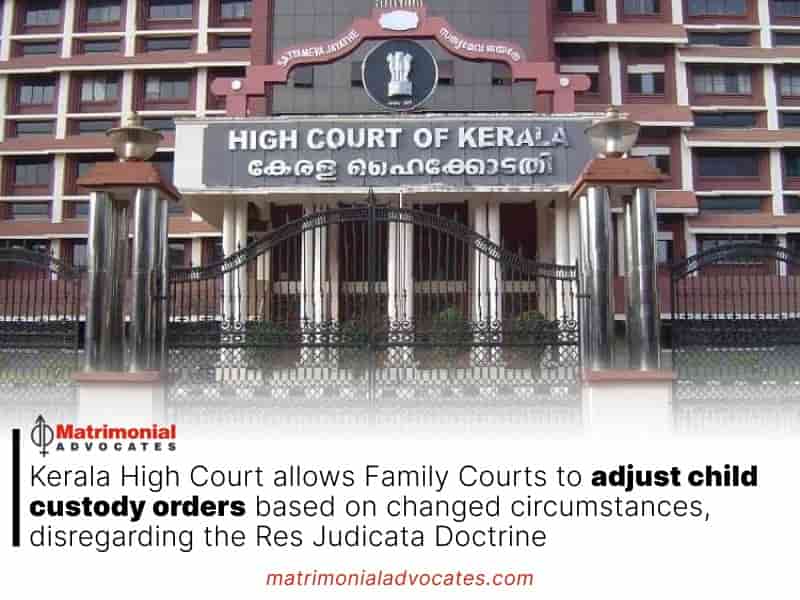
The Kerala High Court upheld a Family Court decision, highlighting the right of parties in child custody cases to seek modifications if circumstances change. The Family Court clarified that the initial ruling is not final, stating that the legal concept of res judicata does not hold in child custody matters.
While dismissing the petition challenging the Family Court order, a division bench of Justice Raja Vijayaraghavan V and Justice PM Manoj reiterated that “the Courts have the authority to modify custody orders if there are changes in circumstances that affect the well-being of the child. Even when orders are based on agreement/understanding between parents, they can be revisited if the situation changes and it’s deemed necessary for the welfare of the child”.
The petition was filed to challenge the family court’s ruling, with the respondent seeking to alter the child custody agreement. The petitioner disputed the validity of the application, alleging that the respondent’s intention was simply to prolong the proceedings. In response, the respondent denied these allegations and highlighted the mental health concerns of the child in question. Upon review, the family court determined that the application was valid for modifying the custody arrangement. In court, the petitioner argued that by allowing the modification request, the Family Court essentially endorsed the respondent’s actions, insisting instead on enforcing compliance with a compromise decree. The respondent’s legal representative countered that the doctrine of res judicata does not apply in matters of child custody. They stressed that when deciding custody, the paramount consideration should be the welfare and best interests of the child, rather than solely the rights of the parents under the law. The Kerala High Court dismissed the petitioner’s arguments, affirming the Family Court’s decision to reject the preliminary objection to the mother’s modification application.





